Welcome to another episode of the Natupreneur Movement podcast! Today I speak with naturopath Melissa Gearing about her podcast, the Naked Naturopath, and her journey to publishing three natural recipe books.
T: I’m super excited today (as I always am) to talk to another amazingly prolific naturopath who is a speaker, a multiple times author, a mother, a practising naturopath, and an all-around amazing person who is really passionate about natural health and how we can help our moms and families do amazing things that are in alignment with our natural health beliefs. Hey, Melissa!
M: Hey, Tammy! Thanks.
T: I always talk about being a contribution to the conversation. Because we can always find ourselves a little bit mixed up in the whole question of should we be an expert, a celebrity authority, or this, that, or the other. I really think that being a contribution to the conversation is so much more powerful and you have that in spades! As a speaker on many stages and on your own podcast, in multiple different books. You’ve always got something really valuable to contribute and you do it in so many different channels. So yes, I would say prolific.
M: Thank you! That’s so lovely.
The Naked Naturopath
T: So, some people who follow you might know you as, ‘The Naked Naturopath,’ because you did appear to be naked on the front cover of one of your books.
M: Well, I am naked, but you can’t see things. Whenever I get up on stage, there’s always one person who’s like, “Oh, you’re wearing clothes.”
T: So how did all that come about?
M: Oh my gosh, well, the Naked Naturopath is the podcast. It was really organic, actually. I am a bit of a nudist at heart. Yeah, I grew up in what I call, ‘a naked house.’ My husband is like, “Really? You just leave the doors open?” And I’m like, “Yeah, is that weird?”
It took me a really long time as a teenager and then as a young adult to realise that not everybody did that. I’ve always just been that way and actually my daughter is exactly the same. My mom always says she’s going to be a nudist just like me.
It’s just natural, right? When I decided that I was going to have a podcast, I was talking to my husband and his twin brother about it. I asked them what they thought. They asked me where I was going to go and just started spouting off all these double Ns, because we all love alliteration. And the Naked Naturopath came up and they were like, “Oh my gosh, that’s so you! You’re always naked.”
Massive, Imperfect Action. Just do it.
So that’s where it came from. When I say it was organic, it’s because everything I’ve done has just been me starting from scratch and then building it. Something that’s always stuck with me is the idea of massive, imperfect, action. Just do it and then build on it. See what the response is and change it if you need to as the needs change.
So the Naked Naturopath was this no-bullshit thing. None of the stuff that takes away from the purest element of it. It was this organic thing and it’s still naked, and bare. It’s just the truth and we talk about stuff that’s going on in the world.
I hope that it comes across like that. It comes from my heart and it comes from something that I felt from scratch, so it’s naked.
T: I love that! It’s in alignment with your background, what you believe in, and believe to be true. There is so much space and uniqueness in the world. If we all just lived our truth and were all in alignment with our experiences, it really comes across.
Finding Your Voice as a Naturopath
M: Something you said in the intro about speaking our truth and finding our voice. When I first started out, I found it really difficult to find my space within this industry because there are so many practitioners in Newcastle, as you know. It’s prolific, the naturopaths here.
I wondered what I was going to bring to the table. So I started to see people one on one and work with my mentors to try and find what I was good at. It was just peeling things back, peeling off the layers, peeling off the clothing or all this emotional baggage that we have. There are practitioners who may know more about certain bits and pieces. People specialise in the gut or in fertility.
I tend to get a general array of people and I definitely see myself as a general practitioner. But I love that because they don’t come to me for the specialty stuff. They come to me for me. You probably found that as well because you’re quite a unique individual. People gel with you and that’s what I have to give. I give my authentic self.
T: For a lot of the people who listen to this podcast, a lot of practitioners out there – it does take a little while to find your uniqueness. A bit like a fish swimming in the water and recognising that it’s water. You don’t recognise that because you are you, you don’t recognise what makes you, you. Then it takes a little while to get used to the idea that it is actually quite therapeutic for the people who resonate with you and the people who are here to be helped by you.
Embrace Your Uniqueness
M: Absolutely. Even just last week, I have people come in and I know they’re going to be my people and that I’ll be their person. And then I have other people come in and I know they probably won’t stick with me. And that’s okay, as well.
Because plenty of other people out there and they might gel with one of those other people better.
T: That’s the other beautiful thing about being here in Newcastle where there is an amazing array of practitioners who have all of their uniquenesses. It’s really easy to know when somebody comes in who isn’t completely resonant. There are so many people you can refer them to.
It’s great because, I, particularly, am not a fan of skin conditions. Being able to find the right person for the right reasons at the right time is just so much easier. Sometimes, I’m just not going to be the particular practitioner for that particular person. I can instantly refer them to someone just down the road who’s amazing.
I think there’s a real benefit in the collaboration of finding everybody’s uniqueness and then being able to share the wisdom.
Other Praccies Are There to Support You
M: If you can embrace that! I got a new student in the last few weeks and she’s worried about how she is going to do this. It doesn’t matter where you are in Newcastle, there’s somebody like two K’s away. She’s wondering what she’s going to do
She’ll find her thing, but the biggest thing is if she can just embrace that there are so many praccies here. And be cool with that and know that they’re there to support you. If she can get into to the little groups that we have like the alumni or whatever it might be, then all that fear kind of fades away.
Just do your thing and support other people doing their thing. Then everybody has somewhere to go. It’s really nice.
T: Yeah, I think so too. That’s one of the reasons we created NatEx! And we’re so excited that you’re going to be part of it! We need to have these places and spaces to have these conversations so that we can all help one another as well as help the general population in a much better and more cohesive way.
One of the biggest things I’m excited about that you’re going to be sharing at NatEx is about your journey as an author. So many praccies out there (and I used to be included in that) have ‘going to be an author!’ on their vision board. We want to publish our own books because we’ve got so much knowledge in our heads. And having a book with your name on it is such a nice little ego trip, to begin with.
But there’s this journey that it takes to actually produce a book and bring it out into the world. The analogy of birthing worked for me. What has your journey been like as an author?
Journey to Publishing
M: It’s honestly been one of the hardest things that I’ve ever done. But when you hold that book in your hand and it does have your name on it, it’s one of the most rewarding things. It’s so much more than the ego in the end. Yeah, you want to have a book with your name on it. But in the end, when you literally hold that hard book with your name on it, and you’ve been through everything to get to that point, you deserve it. You know that you’ve worked so hard to have that in your hand.
T: And it is so much harder than people make it out to be!
M: Absolutely! But you don’t know until you do it, right? I would have loved to have somebody to speak to before I did it. But I’m this ‘just do it’ kind of person. I have always had a project in my business. I graduated in 2011 I opened a private practice and wrote three books in three years.
I’m taking a break now but I have this just go and do the big ideas. If you’ve got these things in your head just get them out there. Because something that I have seen in other praccies and in my family and my friends is that they keep they hold on to these ideas. And then do them in dribs and drabs. I know that everyone’s different. But when they put it out there, it may not be received the way they thought it was going to be.
T: Yeah, I think there’s divine right timing that happens with these things. In Elizabeth Gilbert’s book, Big Magic, she talks about how ideas come and dance with us for a particular time, for a particular reason, in a particular way. If we don’t have a relationship with that idea, or we don’t dance with that idea, then it can go and dance either with somebody else. Or the timing just kind of gets out of kilter when it finally comes up because we haven’t paid it the attention that it needed.
Just Do It, Then Build On It
M: Yeah, totally. I went to see Grace Lieber. Have you heard of her? She’s this really cool, funky chick. I went to one of her workshops in Sydney and talked about just getting your stuff out there and getting some kind of feedback on it.
So when I wrote my detox programme a couple of years ago, I just put it out. It wasn’t perfect. But I’ve worked on it ever since and we add to it. Like last year, we added a portion about a technology detox to it because that’s our times. So she talked about taking massive, imperfect action, and that’s always stuck with me. That’s really been my attitude to life, I’ve found.
When I wrote the first book, I wrote it because I had a lot of clients come in with food intolerances. That’s really where I started my clinic because I had a lot of food intolerances myself. You tend to attract what’s going on for you at times in your life. Since I’ve had a baby, I get a lot of new mums and that’s beautiful as well. So when I had all these food intolerances, I was getting all these clients in and they were asking, “How do eat? How do we do? How do we write recipes?”
The Recipe Books
I started writing these recipes for them. They all asked me, where was my book? They told me that if I had a book, they would buy it. So when I decided to do it, I already had it all. I’d written recipes for nearly every person who walked into my clinic. So I started collating that and putting it all together.
So my first book almost wrote itself. I sat down and put my introduction in, which was really just my intention for the book. That first book was so organic and we pre-sold hundreds and hundreds of hundreds of that first book. I self-published it and that was a huge journey. Very soon after everybody wanted a second book. I’d still been writing recipes so I still had more to give.
When you self-publish, it’s very much about how many pages because every page costs another dollar. That first book was about 50 pages and it was $65. So it was really expensive for what it was but it filled the need for people, they wanted it, and that was cool. The thing about cookbooks is they are in colour. So every second page has a full-colour page.
T: I wrote my book and published through a publishing house. Mine was all black and white and text. But even just to have a black and white picture brings a whole level of complexity that arises. So when someone says that they’ve published a recipe book, I feel it viscerally! I’m not sure that everybody’s quite going to understand.
M: You have to have that coloured photo, right? There are so many elements. You have to:
- have the food
- prep the food
- shoot the photos
- put it in the book
- write your recipe title
- draft your introduction
- list your ingredients
- write out the method
All that needs to be laid out. So you need a graphic designer. I tried, trust me, to do it on my own and you really need somebody who knows what they’re doing for that kind of thing. There are so many layers to any book, but especially for a recipe book. Somebody once said to me, ” You haven’t even written a book. It’s just recipes.” And I was like, “Dude! The recipe book is so much harder. I wish I’d written a novel. My publisher wishes I’d written a novel.” When I self-published, I wished I’d written a novel. It would have been so much easier.
So yeah, it just happened that way. The second book was double the size and half the price. It was so exciting. I just knew so much more, right? Because you just learn from doing it.
T: Oh, yeah! That’s a tweetable, people!
Learn From Just Doing It
You don’t learn from thinking about it or planning it. You learn from doing it.
M: And I learned hard. I learned hard and fast and I learned a lot. So when it came to my third book, I was approached by this platform that reaches out to authors ask if you want to write another book. It’s almost like go fund me but for publishing houses.
So what happens is you put the idea out there. I spent weeks writing a huge proposal with pages and pages and pages. We shot a 10-minute video (which had to be professionally shot) and all this stuff. Then, depending on the number of pre-orders that you get, you then get offered to publishing houses. That’s how I got into publishing.
I sent my second book to so many different publishing houses before I wrote it, and there was just no interest in Australia. Then, I had 11 or 12 different publishers approach me for the third book, but they were all in America. I don’t know why but maybe the market is very saturated here. The publishers who approached me said they’d never seen anything like it before. Whereas here, we find them at Target. So anyway, there’s a huge gap to be filled in America, which is, is there for the taking. If anyone else wants to write a cookbook, they want them.
So that’s kind of my journey of the three books.
Speaking at NatEx 2020
T: I’m so excited that we get to hear more of the how-tos in your deep-dive on stage at NatEx. That’s really exciting for everyone who’s going to be there for that workshop. The theme for NatEx is Love Your Work, Love Your Life, and Love Yourself.
I want to dive deeper. We just heard how much you love your work. And you love the different types of clients that you attract based on different parts of your life and things like that. But what do you love about how your work melds into creating a life that you love?
How Do You Meld Work and Life?
M: Oh, I guess my work isn’t work. It is my life. I grow the veggie garden and I come into the kitchen and I make all these weird and wonderful foods and I feed them to my guinea pig husband, he says yes or no, and then I write them all down. So for me, the cookbooks were never work. It was all the stuff around it, to create them and make them into a good book that became work. But it was still a labour of love.
The first half of this year has been the most stressful of my entire life. That’s because I happened to pick a publisher who went bankrupt, unfortunately, out of all of those people who approached me. In the back of my books, the first person I always thank has been my clients. I often have to stop myself from just reaching out and asking them to come over for coffee. Because I love my clients! I feel like they’re like a part of my family and my friends and I love being able to support them.
You know, it’s such an honour and a privilege to have that place in someone’s life. I love it.
I kind even remember your question!
T: When I was first starting out, I had a really clean delineation between being at work and being at home. I had work-life and then I had home-life. There was a real separation of those two things. Now, just as you were describing, my work is my life and my life is an extension of the things that I love and the things that I get to do. I didn’t know that I was able to do that. I didn’t think that my qualification afforded me that. My qualification was to go and do one on one things with my clients and then to go home and save up money to go and do life stuff.
Whereas now I just love being able to weave the two together. I love that you do the same with going out to your garden and trying out all the different foods out with your hubby. I’ve seen the pictures on social media with you and your hubs. As a profession, I really think that we need permission to be able to meld our work life and our home life together.
M: Yeah, and it took a little while. I think when you start out, you always have those barriers up to protect yourself as a practitioner. I still have them because I don’t want to be a sobbing mess every night when I come home. Because you do some really serious work with people. But being able to have a different side to it is amazing. I would be very drained if I just did one-on-one five days a week.
So when I set up my garden in my front yard recently, I put two more garden beds in, and that was a business expense. That is the ultimate goal of my life if I can set up veggie gardens as a business expense. That’s my joy. It just makes me so happy.
T: I totally get that. As are my retreats, to be honest. , I absolutely love teaching overseas. For that to be something that is just part of my business life is so special.
How Do You Manage Burnout?
The other reason that we utilised the term ‘love’ in our NatEx theme is that I have personally experienced burnout. I’ve seen it just run rampant in our profession. So I’ve been asking everyone on the podcast this year: Have you experienced burnout or adrenal fatigue as a practitioner? Or practitioner fatigue where we just see so many clients that sometimes things change for us? That element of loving yourself and taking care of yourself. I just wanted like your biggest tip that you’ve learned as a practitioner to take care of yourself.
M: I don’t know that I’ve learnt it yet.
T: Great. That’s one of the most common answers we’ve been getting! It’s a practice, right?
M: Oh, good! It’s constant. That balance is so great. I have to make sure I’m running myself ragged. I’m not checking my emails every five minutes or on Facebook. I’m not on the socials, checking who’s replied to my latest blog or what the comments are. I really have to be careful of that.
Along time ago I took all those notifications off and I did all that. But it still gets me. Someone might have emailed me and I think I have to reply straight away even though I have that auto-response. I just want to be there for them. But I’ve got to make sure that I remind myself to just chill. I can reply tomorrow when I’m in the clinic. If it was an emergency, someone would call you.
As I mentioned, the first half of this year was probably my lowest point with that publisher that I first went with. My autoimmune disease flared up and I wasn’t the mum that I wanted to be. So I really had to take time out for me and just do some healing. I’ve cut back the clinic a little bit and I’m spending more time in the garden. Like I said, I put new garden beds out, because that really feeds me. So I need to do that a bit more. I was in the clinic four days a week and I’d have Callie home Wednesdays. But I’ve closed on Fridays and I have her home Fridays with me now as well. , Because I just felt like I really needed to spend some time with her. And I have the luxury of doing that.
So I just reassessed. I reassessed and reworked it. I’m sure I’ll have to do it in the new year again. But we just take it as it comes.
You Can Choose What You Do With Your Schedule
T: It sounds like your schedule was driving you and then there was a notion that you can choose what you do with your schedule.
M: Yeah, definitely. I feel like it was this big battle with me. I have to remind myself that I’m not resting on my laurels. I’m just taking a break. I’m just taking some downtime and that’s okay. I’ve worked really hard for the last few years and I’m just going to feed back for myself. Just like in the garden, I put the compost in, turn that over. It’s what I do for the garden so why wouldn’t I do it for me?
T: Beautiful. I love that. That is absolutely amazing. I am really inspired when people stop, reconsider, walk the walk, and talk the talk, actually listen to our bodies and do what we need to really heal ourselves so that we can be of service to others. I acknowledge what it takes to do that as well. Sometimes it takes a lot of courage to get over the fear that we’re going to do it differently and it’ll get a different result to what we want to have.
I’m so, so grateful for such a beautiful conversation today, Melissa! Thank you so much!
Take Action
If you got a gold nugget out of this (I absolutely did!), please share it with any practitioners that you know who need to hear it as well. And if you haven’t already, go and check out Melissa’s podcast, the Naked Naturopath.
We’re looking forward to seeing Melissa at NatEx, where she will be sharing more of her book wisdom! Melissa is just one of the amazing speakers and workshop hosts who will be presenting at NatEx 2020. Don’t miss out on all the brilliance they have to share!
Get your ticket to NatEx 2020 now.

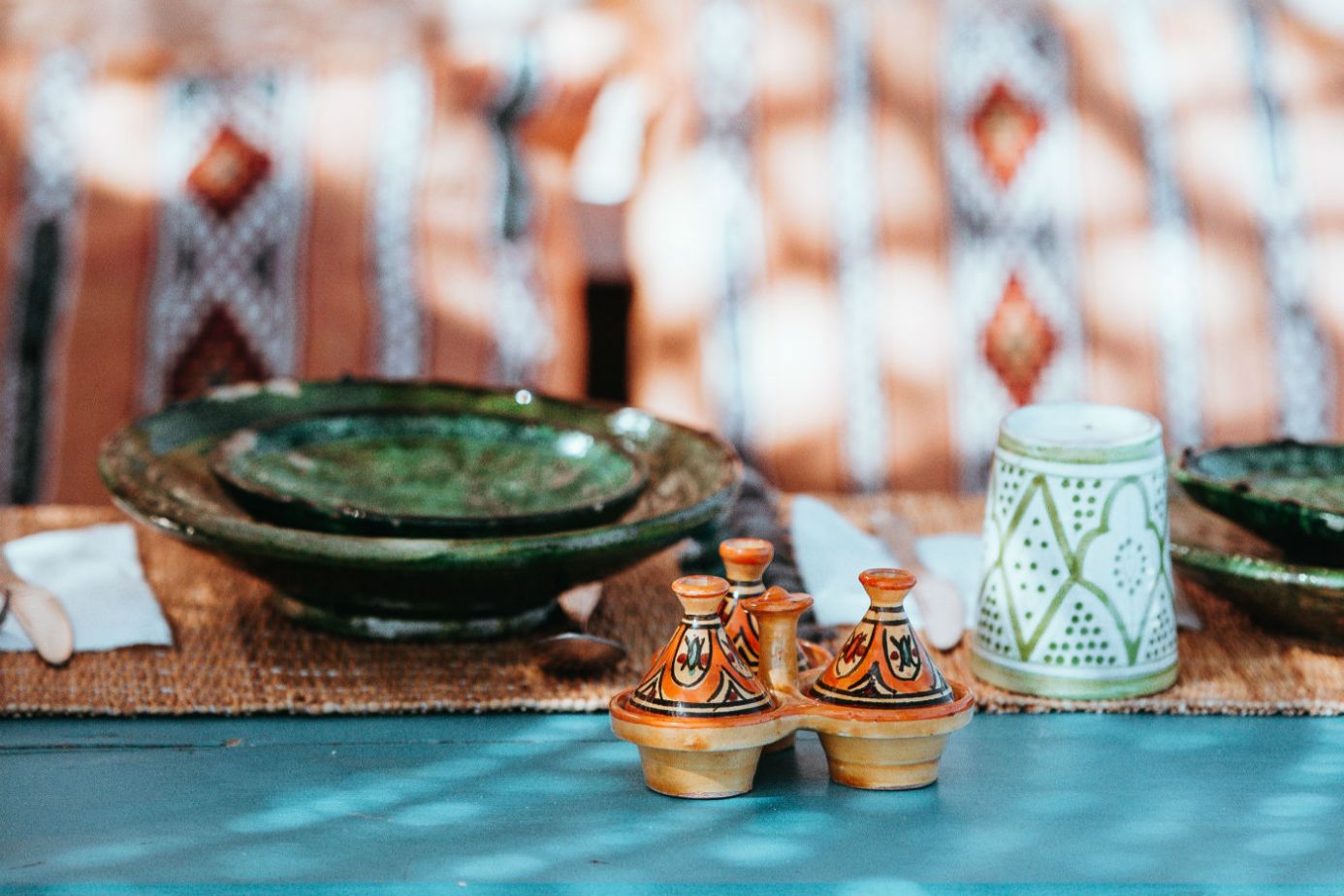
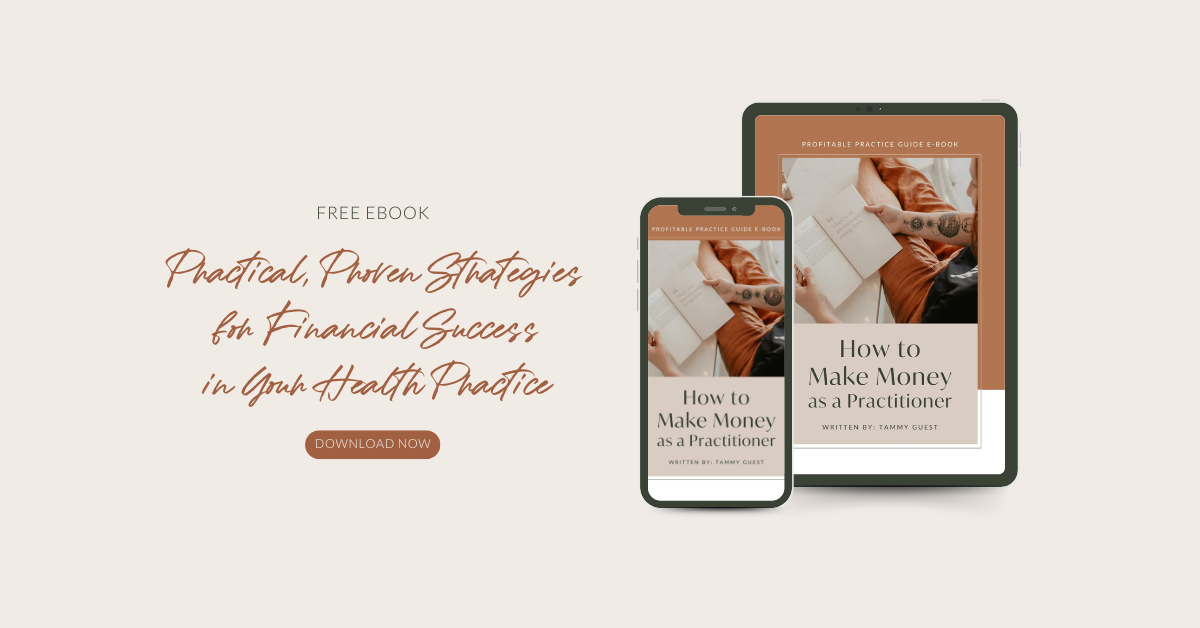
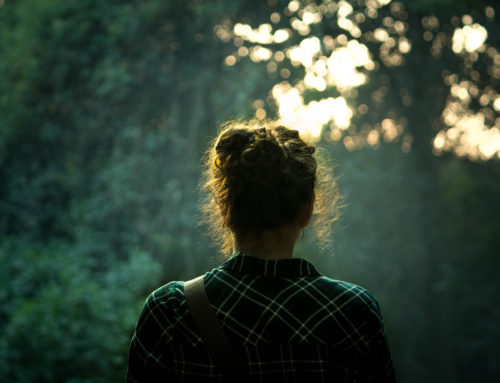
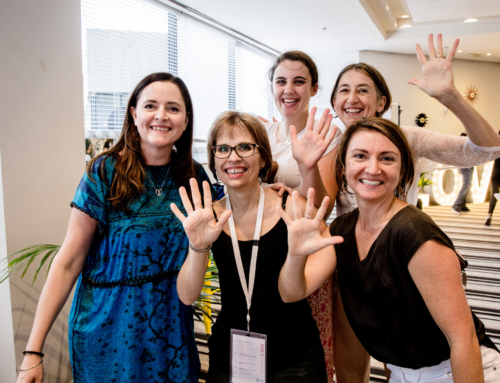



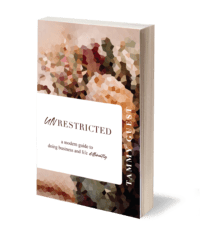
Leave A Comment